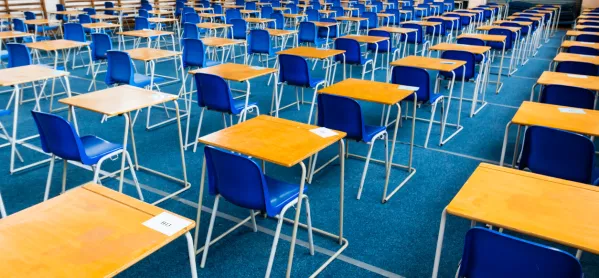Ofqual is set to make major changes to the results predicted by teachers in this year’s GCSE and A levels to prevent the value of students’ grades being “significantly undermined”.
The qualifications watchdog said today that the final results this year are set to be slightly higher than 2019 results with an increase of around 1 per cent for GCSE and around 2 per cent for A level.
But it has had to make major changes to the teacher-assessed grades it was provided with after the cancellation of this summer’s exams because of the coronavirus.
Senior MP: Ofqual must not be afraid of scrutiny
Coronavirus: Williamson warned over grading ‘injustice’
Quick read: Year 10 and below will get grades, Ofqual confirms
Ofqual said the “vast majority” of schools and colleges had submitted “optimistic” grades.
It said these cases included those who genuinely, rightly or wrongly, believed their candidates would have performed better. But it said there was also a small minority who had sought an advantage for candidates.
Most GCSE and A-level grades ‘will be the same as school assessment’
Ofqual said that if it had stuck with all the teacher-assessed grades, the 2020 results would have gone up by 12 per cent at A level, across all grades, and 9 per cent at GCSE - with bigger increases in core subjects.
The regulator said an improvement on such a scale in a single year has never happened before and to allow it to happen would “significantly undermine” the value of these grades.
However, Ofqual also said it expected the majority of grades that students receive to be the same as those provided by their schools and colleges.
And it added that almost all grades students receive will be either the same as the centre assessment grades or within one grade.
Ofqual is using a standardisation process this year to award grades following the cancellation of exams because of the Covid-19 outbreak.
It will award grades based on teacher assessment, a “rank order” of students in each school for each grade and subject, and historical school performance data.
The Commons Education Select Committee has said it is concerned that this model could discriminate against young people from disadvantaged backgrounds and black, Asian and/or minority-ethnic (BAME) communities.
Ofqual said today its initial analysis of the grades being awarded was “very encouraging” and suggests there will generally be no widening of the gaps in attainment between different groups of students.




